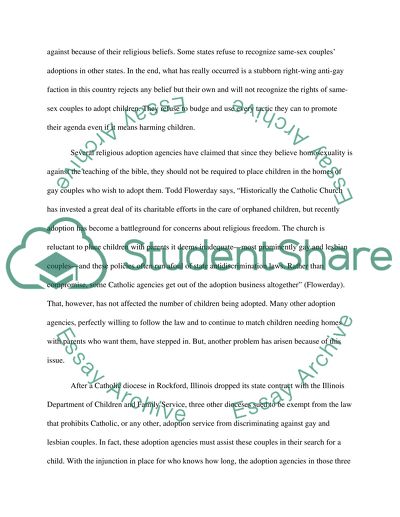Cite this document
(“Gay Adoption Research Paper Example | Topics and Well Written Essays - 2250 words”, n.d.)
Retrieved from https://studentshare.org/english/1436506-gay-adoption
Retrieved from https://studentshare.org/english/1436506-gay-adoption
(Gay Adoption Research Paper Example | Topics and Well Written Essays - 2250 Words)
https://studentshare.org/english/1436506-gay-adoption.
https://studentshare.org/english/1436506-gay-adoption.
“Gay Adoption Research Paper Example | Topics and Well Written Essays - 2250 Words”, n.d. https://studentshare.org/english/1436506-gay-adoption.


